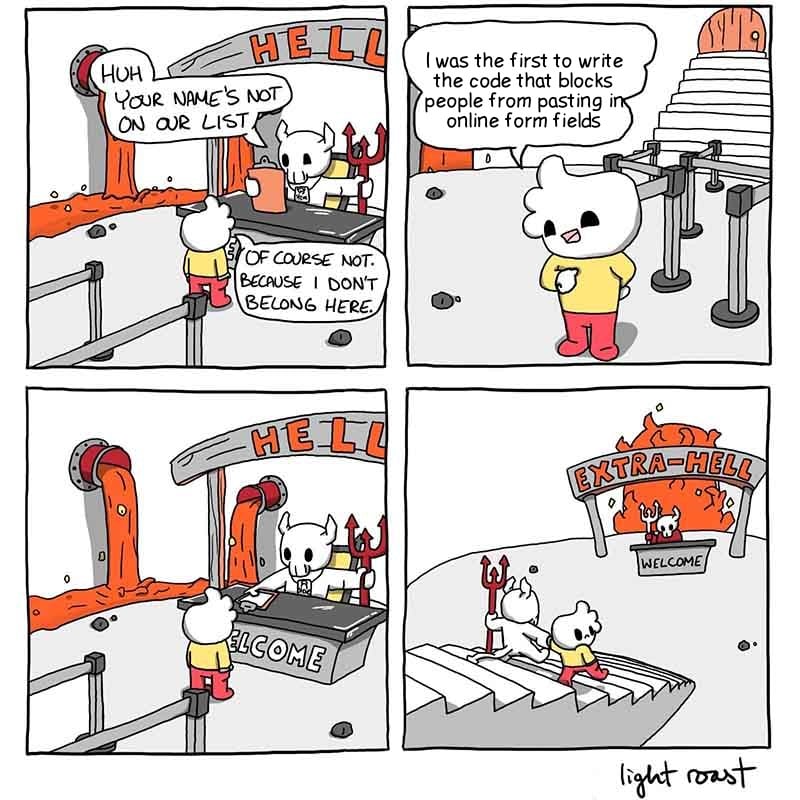To be fair, this was probably not the programmer's fault, but rather the Product Owner or User Experience Designer that decided it should be so.
Often these things are well-intentioned, but misguided.
Preventing pasting of password for example might have been done with the thought "If we make the user confirm their password by typing it manually a second time, they will be less likely to create their account with a wrong password" - nice idea, but shortsighted. Preventing paste may mean password managers don't work, or your 70 year old grandmother can't paste it in from whatever Word document she keeps all her passwords in.
And someone might argue "people shouldn't be keeping their password in a word doc!" and that might be true, but it's not the role of UX to enforce best practice.
I think modern UX is getting better, because the recognition is now that the role of UX is to allow the user to work in the way which suits them, recognising that not all users work the same way or have the same needs. Preventing copy-paste is a roadblock, and you shouldn't do it.
So yeah, any site that stops me copying or pasting in 2025 can certainly go to hell.
